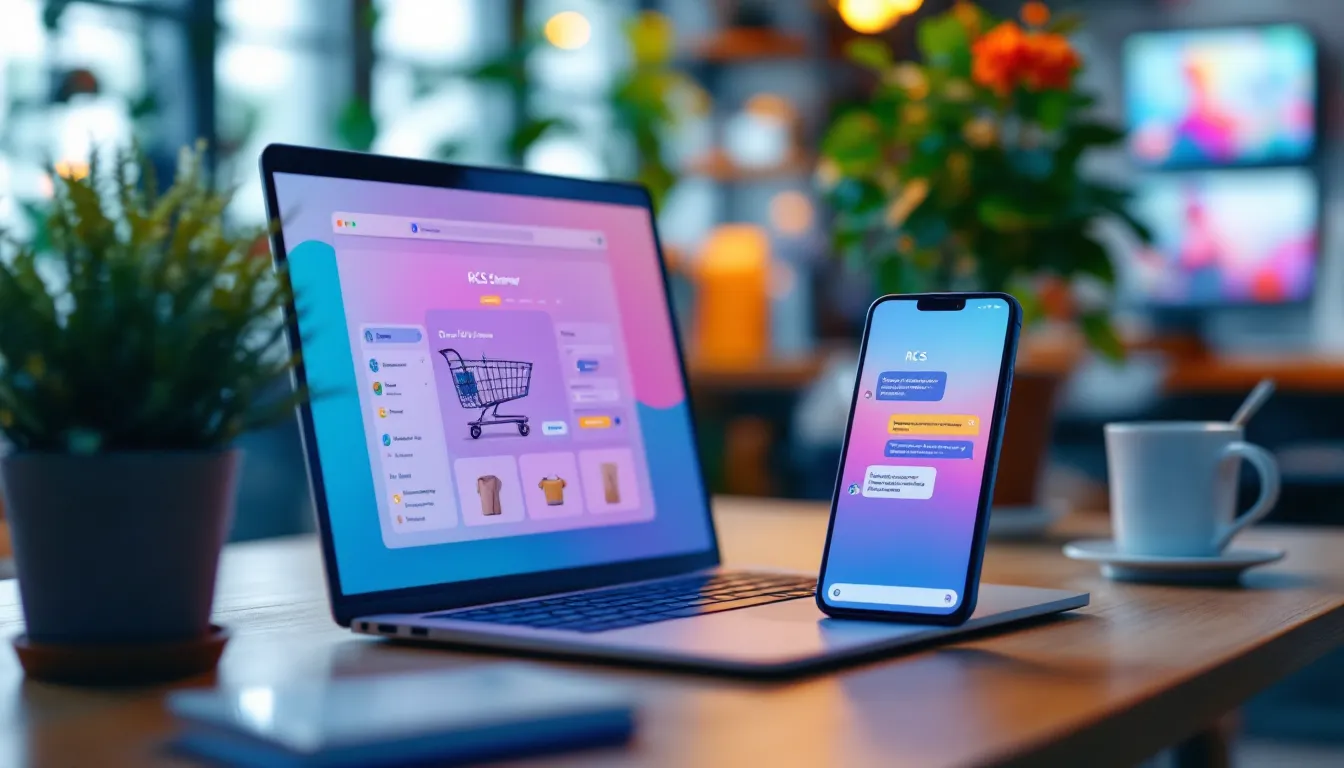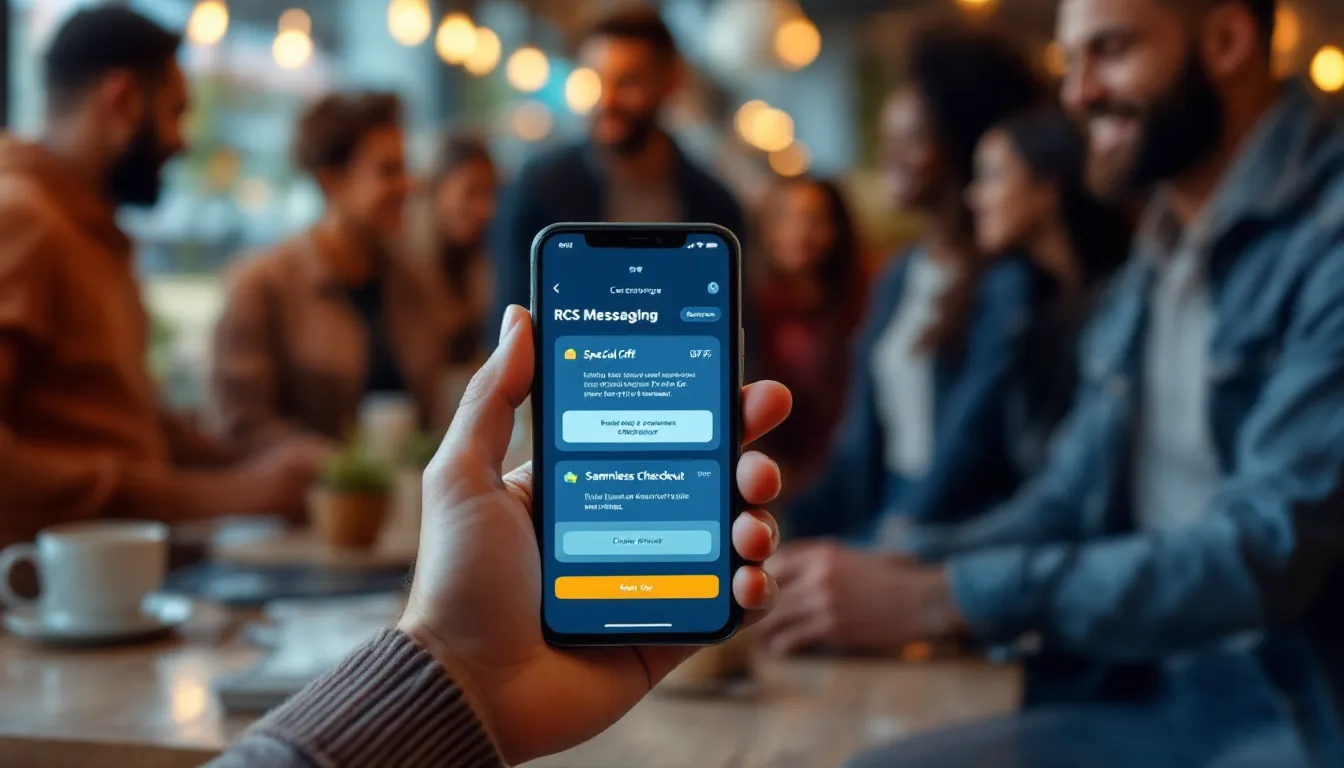How RCS Messaging Can Reduce Cart Abandonment and Boost E-commerce Sales by 20%

In today's digital marketplace, e-commerce brands face the ongoing challenge of cart abandonment, which significantly impacts their sales figures. Recent studies suggest that cart abandonment rates can be as high as 70%, meaning businesses could be losing a substantial amount of revenue. However, innovative solutions like RCS messaging present an opportunity to engage customers and drive conversions. This article explores the importance of RCS messaging in e-commerce and how it can reduce cart abandonment and potentially boost sales by up to 20%.
Understanding RCS Messaging and Its Importance in E-commerce
Rich Communication Services (RCS) messaging is the next generation of SMS, designed to enhance customer communication with rich multimedia content. Unlike traditional SMS, which is limited to text and simple links, RCS enables businesses to send interactive messages, photographs, videos, and even buttons for immediate actions. This provides a more engaging experience for customers, allowing e-commerce brands to convey essential information effectively.
What is RCS Messaging?
RCS messaging is built on top of the existing SMS infrastructure but adds capabilities that significantly elevate customer experiences. It supports multimedia formats, which allow brands to incorporate images, promotional messages, and interactive elements that can lead customers directly to a purchasing decision, eliminating barriers that may arise in traditional messaging.
Additionally, RCS messaging offers features such as read receipts and typing indicators, which can enhance the interaction between businesses and customers. These functionalities provide valuable insights into customer engagement and can help brands adjust their communication strategies in real-time. The ability to create branded messages with company logos and colors also reinforces brand identity, making communications feel more professional and trustworthy.
The Role of RCS Messaging in E-commerce
In e-commerce, RCS messaging serves several roles, primarily focusing on customer engagement and retention. With the ability to personalize messages, brands can tailor their communications based on user behavior, preferences, and past purchases. This not only deepens the customer relationship but also increases the likelihood of conversions from initial interest to completed sales.
Another critical role RCS plays is in providing updates on order status, shipping information, and even personalized offers to entice customers back to their carts. By keeping customers informed and engaged, brands can effectively reduce the likelihood of cart abandonment. Furthermore, RCS can facilitate customer service interactions, allowing users to ask questions and receive immediate responses, which can significantly enhance customer satisfaction and loyalty.
Moreover, RCS messaging can be utilized for promotional campaigns, where businesses can send time-sensitive offers directly to customers' devices. This immediacy not only creates a sense of urgency but also encourages customers to act quickly, leading to increased sales. The interactive nature of RCS allows for seamless integration of call-to-action buttons, enabling customers to make purchases or redeem offers with just a tap, streamlining the shopping experience and making it more enjoyable.
The Connection Between RCS Messaging and Cart Abandonment
Cart abandonment is often attributed to various factors, including unexpected costs, lengthy checkout processes, or simply distractions that pull customers away from completing their purchase. Here, RCS messaging becomes not just a communication tool but a powerful strategy to address these common pain points. The rise of mobile shopping has made it increasingly important for brands to adapt their strategies to meet the expectations of consumers who demand convenience and immediacy. As a result, RCS messaging offers a modern solution that aligns with the fast-paced nature of today's shopping habits.

How RCS Messaging Can Prevent Cart Abandonment
By sending timely reminders through RCS messaging, brands can gently nudge customers back to their abandoned carts. For example, a message containing the items left behind, with high-quality images and a clear call-to-action button, makes it easy for customers to resume their shopping experience. RCS also allows for personalized content – such as discount codes or limited-time offers – that can provide the extra incentive needed to convert a hesitant buyer. This level of personalization not only increases the likelihood of conversion but also fosters a sense of connection between the customer and the brand, making them feel valued and understood.
Additionally, RCS enables businesses to ask for customer feedback regarding their shopping experience, helping them identify and rectify friction points more swiftly. Gathering this information and responding accordingly shows customers that their opinions matter, further enhancing brand loyalty. Furthermore, by analyzing feedback trends, brands can refine their overall user experience, ensuring that the shopping journey is continually optimized for customer satisfaction. This proactive approach can significantly reduce future instances of cart abandonment, creating a more seamless shopping experience.
The Impact of RCS Messaging on Customer Decision Making
The decision-making process in e-commerce is often laden with hesitation and uncertainty. RCS messaging can play a pivotal role in quelching this uncertainty by providing customers with supplementary information, answers to inquiries, and even tailored recommendations based on previous purchases. This immediate access to information can help alleviate concerns that may otherwise lead to abandonment, such as questions about product specifications, shipping details, or return policies.
Moreover, the interactive nature of RCS allows customers to engage with the content in a way that feels personal and valuable. By utilizing rich visuals and easy navigation options, e-commerce brands can effectively guide customers toward a decision without overwhelming them with information. The ability to incorporate features such as quick replies or interactive carousels not only makes the shopping experience more engaging but also empowers customers to make informed choices at their own pace. This level of engagement is crucial in building trust and confidence, which are essential components in the customer journey toward completing a purchase.
Leveraging RCS Messaging to Boost E-commerce Sales
With e-commerce continuously evolving, brand owners must explore innovative approaches to enhance sales effectively. RCS messaging, with its rich features and capabilities, offers a compelling avenue to engage customers and drive revenue growth.

Strategies for Implementing RCS Messaging in Your E-commerce Business
To harness the power of RCS messaging, businesses should start by integrating RCS into their existing communication framework. This may involve partnering with a messaging platform that supports RCS or leveraging APIs to create custom messaging solutions. Once set up, it is essential to segment your audience for personalized communication.
Developing engaging content is vital; utilizing eye-catching visuals and clear CTAs can significantly enhance the effectiveness of messages. Testing various types of messages and strategies will help identify what resonates best with your audience. A/B testing is a useful approach in determining the optimal message format, timing, and content. Additionally, incorporating interactive elements such as carousels or quick reply buttons can further enrich the customer experience, making it easier for users to navigate through options and make purchasing decisions.
Moreover, businesses should consider the timing of their RCS messages. Sending messages at strategic moments, such as during peak shopping hours or just before a holiday, can increase the likelihood of engagement. Creating urgency through limited-time offers or flash sales communicated via RCS can also drive immediate action from consumers. By aligning messaging with customer behavior and preferences, brands can maximize the impact of their outreach efforts.
Measuring the Impact of RCS Messaging on Sales Performance
To assess the effectiveness of RCS messaging efforts, e-commerce brands should implement robust analytics that measure engagement rates, conversion rates from messages, and overall sales performance. By continuously monitoring these metrics, businesses can adapt their strategies based on what is proven to work. Tracking clicks, interactions, and the subsequent changes in cart abandonment rates will provide insight into the direct impact of RCS initiatives.
In addition to these metrics, it is beneficial to gather customer feedback directly through RCS channels. By inviting customers to share their thoughts on the messaging experience, brands can gain valuable insights into customer preferences and pain points. This feedback loop not only helps refine future messaging strategies but also fosters a sense of community and connection between the brand and its customers. Furthermore, analyzing the long-term effects of RCS messaging on customer loyalty and repeat purchases can provide a deeper understanding of its role in building lasting relationships with consumers.
Future Trends in RCS Messaging for E-commerce
The future of RCS messaging holds immense promise for e-commerce, with anticipated advancements expected to further enhance the customer experience and streamline the purchasing process.

Predicted Developments in RCS Messaging Technology
As technology progresses, RCS is predicted to incorporate even more sophisticated features, such as automated messaging powered by artificial intelligence. AI-driven chatbots could provide real-time assistance, answering customer queries instantly while guiding them through the buying process more efficiently. Additionally, improvements in data privacy and security will ensure that customer information is handled responsibly, which is critical in building trust. Enhanced analytics capabilities will also allow businesses to track customer interactions more effectively, enabling them to tailor their offerings and marketing strategies to meet specific consumer preferences.
Moreover, the integration of multimedia content within RCS messages will revolutionize how brands communicate with their customers. Imagine receiving a message that not only contains text but also showcases a product video, customer reviews, and interactive elements like polls or quizzes. This rich media experience will captivate customers, making them more likely to engage with the content and, ultimately, make a purchase. With the ability to send personalized promotions and offers directly to customers' devices, RCS messaging will become a powerful tool for driving conversions and enhancing brand visibility.
The Long-term Impact of RCS Messaging on E-commerce Sales
In the long term, RCS messaging can redefine how brands approach customer engagement and retention. With its ability to facilitate richer interactions, brands can forge deeper relationships, ultimately leading to increased brand loyalty and repeat purchases. The evolving landscape of RCS messaging will likely continue to drive innovations that allow brands to better understand and meet their customers’ needs. This level of personalization will not only enhance customer satisfaction but also provide valuable insights into consumer behavior, allowing brands to adjust their strategies in real time.
By embracing RCS, e-commerce businesses not only stand to reduce cart abandonment rates but also enhance overall sales performance, setting themselves up for sustained growth in a competitive environment. As more brands adopt this forward-thinking messaging strategy, those that invest early will likely leverage this technology to their advantage in the years to come. Furthermore, the seamless integration of RCS with other digital marketing channels, such as social media and email, will create a cohesive customer journey that enhances brand recognition and encourages cross-channel engagement. This holistic approach will ensure that businesses remain agile and responsive to the ever-changing demands of the e-commerce landscape.
Ready to Revolutionize Your E-commerce Strategy with RCS Messaging?
Embrace the future of customer engagement with nativeMsg, The RCS Business Messaging Creator. Transform your text messaging into interactive experiences that captivate your audience and drive sales. With nativeMsg's intuitive drag-and-drop interface, you can effortlessly create rich, interactive campaigns that resonate with your customers and lead to a significant reduction in cart abandonment rates. Don't miss out on the opportunity to enhance your e-commerce sales by up to 20%. Get Started today and see the difference RCS Business Messaging can make for your brand.
